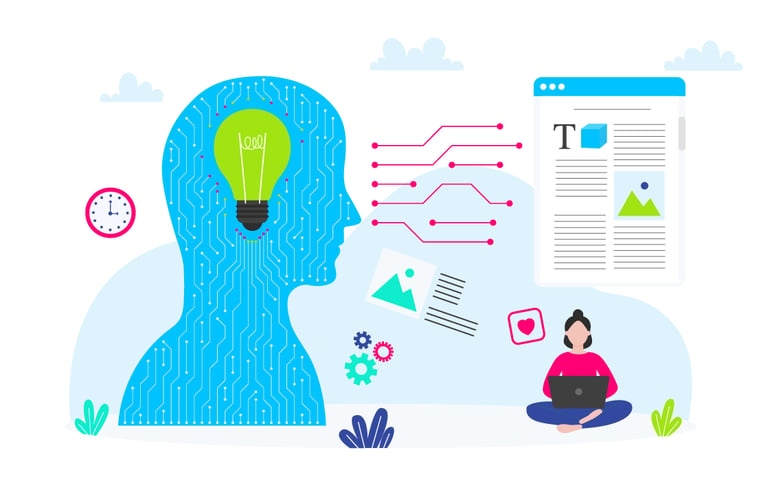Advanced content with generative AI, PIM, and automated text generation
Generative AI has made automated text generation easier than ever with ChatGPT, GPT-4, and others. At the same time, the use of such language technologies poses challenges for many companies since the texts must be not only high-quality and correct but also legally compliant. In addition, it must be possible to generate large volumes of text for a wide variety of text types such as product descriptions, FAQs, SEO tags, or meta elements. This is where generative AI such as ChatGPT or GPT-4 reaches its limits.
An alternative, however, is the integration of generative AI and automated text generation – with a powerful product information management (PIM) system. With an integrated solution, the creative possibilities of ChatGPT, GPT-4, and others can be leveraged while scaling text automation easily and effectively, saving time and resources. In this blog post, you will learn how generative AI, automated text generation, and PIM systems can work together and what benefits they bring to digital commerce.
Unique and compelling content with product data and generative AI
Structured and high-quality product data is crucial. A PIM system helps companies bundle and harmonize all relevant sales and technical product information to deliver offers and services easily and consistently across channels to the right target group. Automated text generation based on central data supports companies in optimizing business processes in a targeted manner, setting up content workflows, and generating target group-specific content.
As soon as a company has decided on a suitable PIM system, the path is clear for automated text generation from a single source. Data forms the basis for these AI-based content solutions. This means that not only can the creation of product descriptions be automated, but it can also be implemented on a large scale and in all desired languages. The more comprehensive and complete the product data, the higher the quality and originality of the result of automated text generation. Thus, the quality of the created texts directly depends on the quality of the existing data. If the data is incomplete or incorrect, the quality of the automatically generated texts also suffers.
However, in the field of automated text generation, there are already new approaches that help companies process and use unstructured data provided via generative AI such as ChatGPT. By combining GPT-4 or comparable models and data-based text automation, text models and variant suggestions can be generated and launched at scale with content automation. So, this combines the available general knowledge as well as structured data to create tens or hundreds of thousands of web, product, and SEO texts.
The use of data-based text models is crucial for greater efficiency and thus for scalable success in digital commerce. Companies can thus save time and resources and be confident that their texts are correct in terms of content and legal compliance. These text models are based on an initial setup of data and rules, which ensures continuous text automation of consistently high quality, variance, and timeliness. At the same time, companies can adapt the tone and wording of their texts in an individual and customized way and vary them to suit their brand. Compared to ChatGPT, GPT-4, and others, human intervention is always possible (“human-in-the-loop”).



